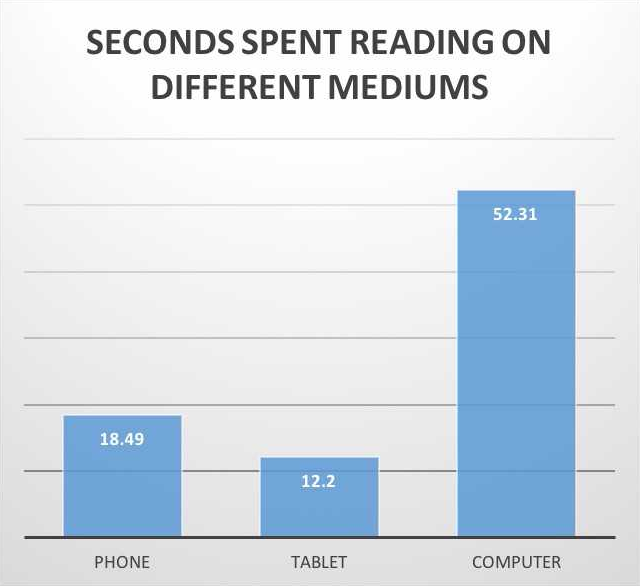Assistant Professor of Mass Communication Kathleen Searles and Associate Professor of Communication at Texas A&M Johanna Dunaway recently conducted an investigation on the effects of consuming news from a mobile device or tablet rather than on a computer.
“By 2020, two-thirds of all online activity is expected to take place on mobile devices,” Dunaway said. “Mobile reduces news seeking and engagement. Mobile-only access to news is better than none, but news is more time consuming and costly to access through mobile devices, resulting in reduced exposure. The effect is most severe among those who are otherwise least exposed to news.”
Searles and Dunaway used eye-tracking technology to detect how long a person’s eye focuses on the information. They measured pupil dilation to indicate how much cognitive effort was being used. Results show those using a mobile device worked harder than those on a computer.
Researchers found people spend more time reading the same news story when they are on a computer than when they are on a mobile device. People spent 52.31 seconds reading a six-paragraph story about Marco Rubio on a computer, but only spent an average of 12.20 seconds reading the very same story on a tablet and 18.49 seconds on a phone. They observed a similar pattern for stories about equal-pay laws and President Donald Trump, according to the online magazine Behavioral Scientist.
“The way we consume all kinds of information has just changed so much in the past five years and so we were really interested in figuring out whether that has implications for the way we consume news, beyond the positive,” Searles said.
The researchers also asked recall questions in which they found that people who consumed news from a computer screen were able to recall much more information than those who used a mobile device. After 24 hours, the gap between computer and mobile users increased.
“We might have a question and just Google it, and as soon as you find the answer, you move on with your life,” Searles said. “Whereas, back in the cave man era where people had to use encyclopedias and go to libraries, there’s a lot more effort then you’re more likely to remember something that requires much more effort.”
Pop-up ads and major graphics on mobile news have a negative effect on retention rates, causing most people to get bored or frustrated and click out, Searles said. Dunaway and Searles said they plan to release a book on their studies.
“The next thing we are looking at is whether or not the way people read news in their Facebook feeds is different on a phone compared to on their laptop,” Searles said. “It’s possible, given what we see with the effects of mobile consumption on recall that maybe it’s more difficult to discern fake news from real news when you’re on your phone and in a social media site.”
News Consumption Study shows mobile users at a disadvantage
August 29, 2017
Statistics on seconds spent reading on different mediums derives from research gathered by Assistant Professor of Mass Communication Kathleen Searles and Associate Professor of Communication at Texas A&M Johanna Dunaway.
More to Discover











